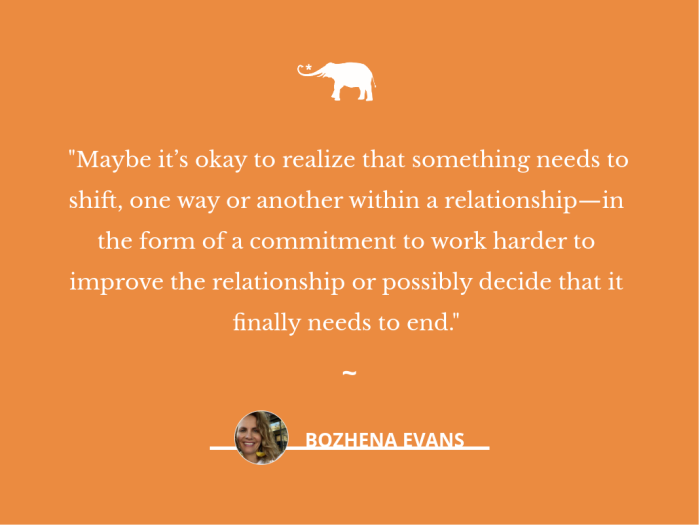There’s no doubt the recent existential trauma we’ve all experienced as individuals, and as a society (yes, I’m referring to the COVID-19 global pandemic) has majorly impacted our relationships.
But, it’s also made many of us better partners.
It’s not a novel concept that relationships, especially long-term committed ones, take massive amounts of work. And in the past couple of years, this has felt even more true.
As a couples counselor in Denver, I have seen the effect that pandemic disruption has had on couples in both new relationships and long term ones.
Let’s take Anna and Jim for instance (their names changed for anonymity) who came to me wondering if they would be able to reignite the spark in their relationship.
They shared that they were forced to cohabitate too soon due to the pandemic, thus missing out on a fun chapter of their relationship journey. Essentially, because they didn’t get to experience those steps, they were propelled more quickly into a more mundane and much less exciting domestic relationship.
With a lot of exposure to one another, they just weren’t feeling butterflies anymore.
For a lot of couples in the same position, they have fallen out of love and decide to call it quits, while others have been able to emotionally reconnect and regain their spark.
Another client, we will call her Kate, came in after annulling her engagement to a long-time partner (even after having purchased a wedding dress and setting a date!).
She shared that after years of being somewhat codependent–again, especially during the pandemic–she no longer felt excitement with (and attraction towards) her partner. She deeply cared for him, but wasn’t sure she was “in love” with him anymore. She felt they had grown apart. They used to go to bars together and have a lot of fun, but she realized she has different lifestyle values, i.e. exercise and less “partying.”
She’s also not sure that she has ever been very physically attracted to him, but perhaps made herself believe that being intimate primarily under the influence was acceptable in relationships.
Kate and her partner own a home together, and in many ways, this feels like divorce. Still, she is willing to pursue her desires for more fulfillment and endure the logistical stress of separation to ultimately find her own happiness.
Long story short, the pandemic put a major strain on all of us, and strained our relationships quite a bit.
Anecdotes aside, plenty of research speaks to the challenges of long-term committed relationships, including economic and social pressures that contribute to relationship distress.
Stress over finances, sexual disparities, the stress of balancing life obligations such as parenting and domestic responsibilities (and many other factors), all lead to growing tension and dissatisfaction in a partnership.
Still, it feels like in the last couple of years, these challenges have skyrocketed, or at least have become more pronounced, and therefore more disruptive to people’s lives. Many of us are in couples therapy, others are annulling engagements, breaking up, divorcing, or in some form of relationship turmoil.
What is happening? It appears that it is not that something is happening, but rather that EVERYTHING is happening. Too much is happening. All at once. But the COVID-19 global pandemic really seems to be the giant excavator that has dug itself deep into our lives and unearthed many relationship issues, while disrupting otherwise seemingly stable relationships.
Why have so many of our relationships unraveled since the pandemic?
When living in close quarters during quarantine, without the freedom to physically separate and privately self-soothe, many relationships underwent immense pressure. And now, with the virus a part of our everyday lives, we may find ourselves coping differently from our partner and more triggered by him/her.
The continued exposure of our pent-up distress to our partners inevitably has taken a toll on relationships, counteracting the amount of fuel present in our love tanks. And there may not be a lot of love fuel left if we are stressed, a little depressed, and generally not easily motivated to do relationship work, like regularly offering words of appreciation to our partners.
So, it’s no surprise that we may struggle in our relationships. The demoralizing global pandemic may also have been the catalyst to move us into a deeper state of introspection about our overall existential fulfillment, including relationship fulfillment.
“Do I experience enough joy in my life? How much joy do I experience with my partner? Am I rushing into a commitment that I’m not sure I want?”
I offer an encouraging perspective: Maybe it’s okay to have the system be shaken up and examined for ultimate fulfillment. Maybe it’s okay to realize that something needs to shift, one way or another within a relationship—in the form of a commitment to work harder to improve the relationship or possibly decide that it finally needs to end.
I am not here to offer advice, but simply offer compassion and validation that it’s okay to grapple with these issues. There is a possibility that in doing so, we acquire more self-awareness, joy, and greater fulfillment in our lives.











Read 0 comments and reply